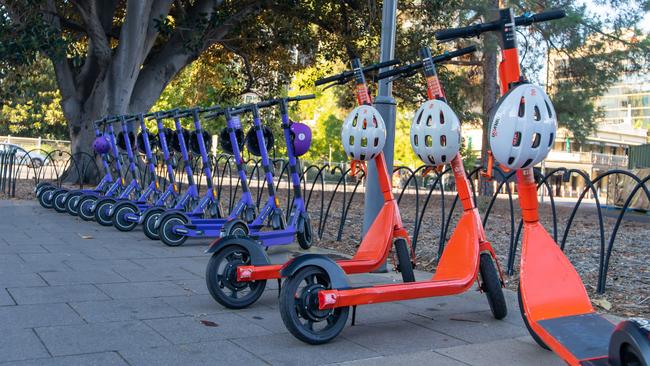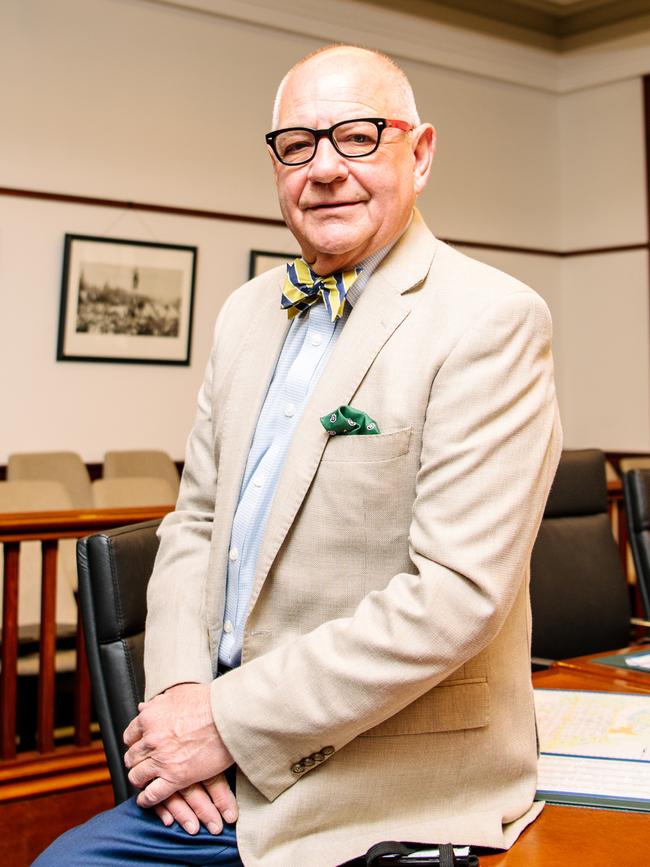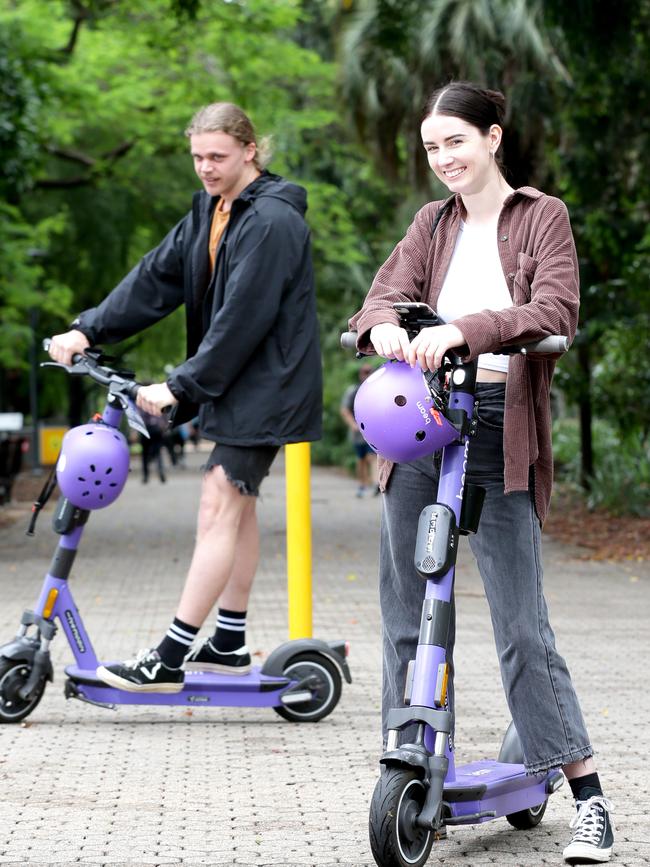Four years and counting: Adelaide City Council extends e-scooter trial … again
Adelaide City Council will extend its e-scooter trial into 2023 – making the trial four years and counting – as stats reveal just how many trips have been made.

SA News
Don't miss out on the headlines from SA News. Followed categories will be added to My News.
One of the “world’s longest trials” of electric scooters will continue on the city streets until the end of June, while the state government reviews their use and regulation.
Adelaide City Council at its meeting on Tuesday night agreed to extend its e-scooter trial until June 30, after having operated on CBD streets since February 2019.
“This is probably one of the world’s longest trials … I note murder trials generally only last 8.6 days, so this sets a record,” deputy mayor Phil Martin said.
“Nevertheless it is a matter of both some controversy in the community and also of enormous pleasure to many users. The difficulty arises, in my view, in that after these four years there is no real template about their use.”
The previous council in September was asked by the state government to apply for a 12 month extension to the trial while it undertook consultation on their use.
Elected members agreed to allow the trial to continue until December 31 to allow for the new council to discuss its future.
Beam and Neuron e-scooters operate in the city, with each company paying the council $1530 per week in operational fees.


A council report, tabled on Tuesday night, found users had taken 808,000 e-scooter trips, equating to 1,121,000km travelled, as of October.
There had been no reports of serious injuries, but two minor injury incidents to third parties – one person tripping over an e-scooter, the other was a collision – as of October.
Mr Martin said a six-month extension, instead of a staff recommendation of 12 months, would give the government time to complete their consultation.
“I hope this motion at the very least applies some pressure to the government that there is a need for a positive operating framework to be developed,” he said.
“One that provides assurances to the community about their safety … but also security to the operators to understand what is required by government at all levels.”
A parliamentary select committee, chaired by Greens MLC Robert Simms, was also looking at the regulation of e-scooters.
Under state law, e-scooters can’t be registered or insured so cannot be used on public roads or footpaths, except where councils have allowed their use when hired from a private operator.
Other councils participating in e-scooter trials were Unley, Charles Sturt and Norwood, Payneham & St Peters.
Police Commissioner Grant Stevens has previously said legislation around the use of e-scooters needed to be revisited as there was confusion among users given the devices were easily available to buy.





